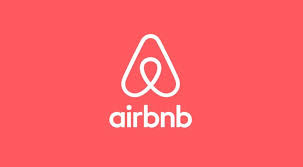Millions of people have booked rooms around the world through Airbnb, the online site. But the attorney general of New York State raises some serious questions about Airbnb’s legality. According to a report released Thursday, as many as 72 percent of Airbnb reservations over the last several years violated New York law.
The report, “Airbnb In The City,” also found that Airbnb isn’t the innocent sounding, entrepreneurial venture that many users believe it to be. A number of vendors are making millions of dollars, while some rentals are more like hostels. The report is based on data obtained by the Attorney General’s Office as a result of a May 2014 subpoena for information about potential illegal hotels using Airbnb’s site.
Here are some bullet points from the A.G.’s report.
- Up to 72% of Airbnb listings are illegal: Of the 35,354 private, short-term listings, data suggest that 25,532 of them violated either New York State’s Multiple Dwelling Law and/or New York City’s Administrative Code (zoning laws). These hosts generated approximately $304 million in revenue from these listings alone. Airbnb itself earned almost $40 million from these transactions.
- Commercial users run wild: Over 100 users controlled more than 10 different apartments apiece that were rented out regularly through Airbnb. Together, these hosts booked 47,103 reservations and earned $59.4 million in revenue. The most prolific user administered 272 unique listings, booked 3,024 reservations and made $6.8 million in revenue. While only 6% of hosts ran large-scale operations on Airbnb, they accounted for 36% of all rental transactions and collecting 37% of total revenue – or $168 million.
- Not hotels, but hostels: New York law prohibits commercial enterprises from operating hostels. In 2013, approximately 200 units were booked through Airbnb for more than 365 nights during the year, indicating that multiple, unrelated guests shared the same unit on the same night, as they would in a hostel. The 10 most-rented units were booked for an average of 1,900 nights in 2013, with one top listing average 13 reservations per unit per night.
- Some trendy neighborhoods: Bookings in just three Manhattan neighborhoods – Greenwich Village/SoHo, Chelsea/Hell’s Kitchen and Lower East Side/Chinatown – accounted for more than 40% of hosts’ revenue, or about $187 million. By contrast, all reservations in Queens, the Bronx and Staten Island combined brought in $12 million, less than 3% of the New York City total.
- Residents are paying the price. In 2013, more than 4,600 units were booked for at least three months of the year. Of these, nearly 2,000 were booked for a cumulative total of six months or more, rendering them largely unavailable for use by long-term residents. Notably, the share of host revenue from units booked as short-term rentals for more than half the year increased steadily, accounting for 38% of the site’s revenue by 2013.
People in the hospitality industry have been waiting for a state to take legal action against Airbnb. And, as you might expect, Airbnb sees things differently.
“We should not deny thousands of New Yorkers the chance to share their homes, pay their bills and stay in the city they love,” Airbnb spokesman Nick Papas told Forbes. “We need to work together on some sensible rules that stop bad actors and protect regular people who simply want to share the home in which they live.”
According to Forbes, San Francisco earlier this week passed the first law that limits Airbnb rentals to 90 days a year of entire-home rentals. Rentals where the hosts are present in the apartment are allowed for an unlimited number of days a year. Hosts will also be charged the city’s 14 percent hotel tax.
RESOURCES
You can read the attorney general’s report here.









